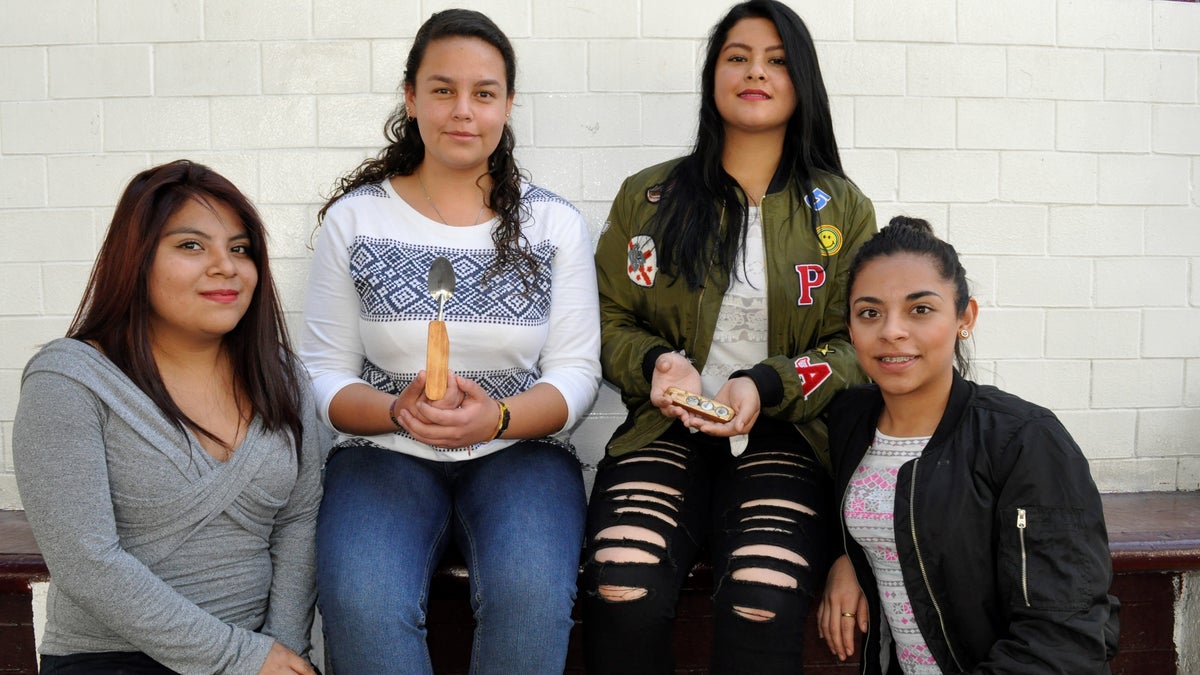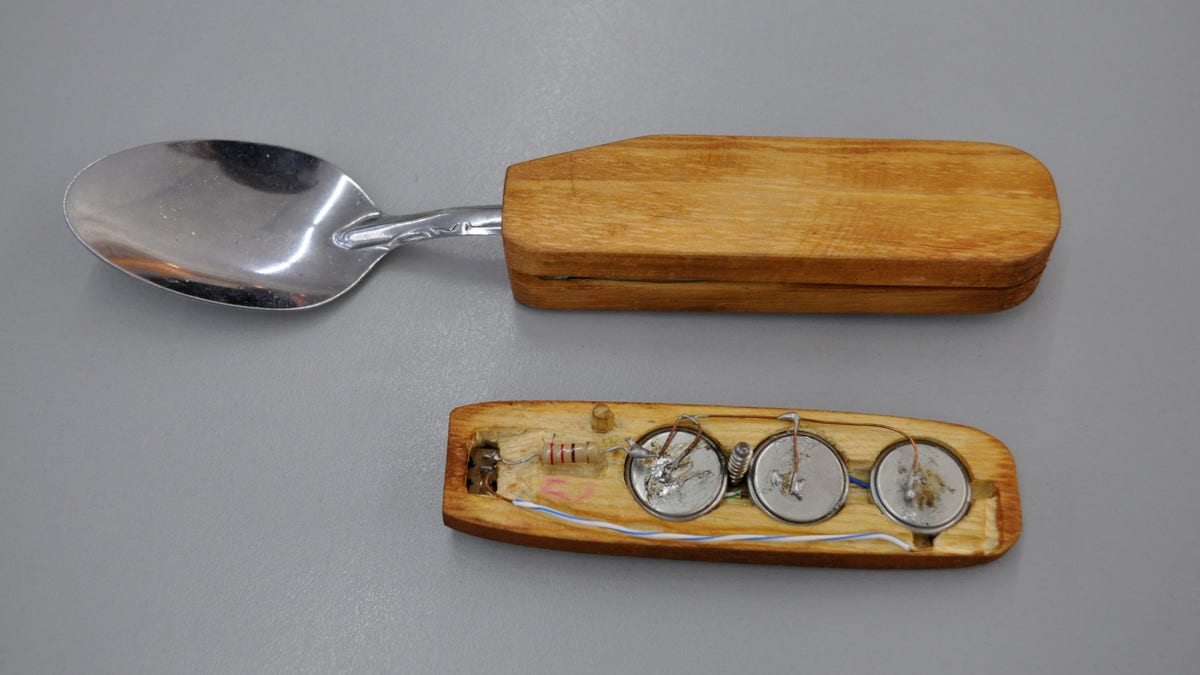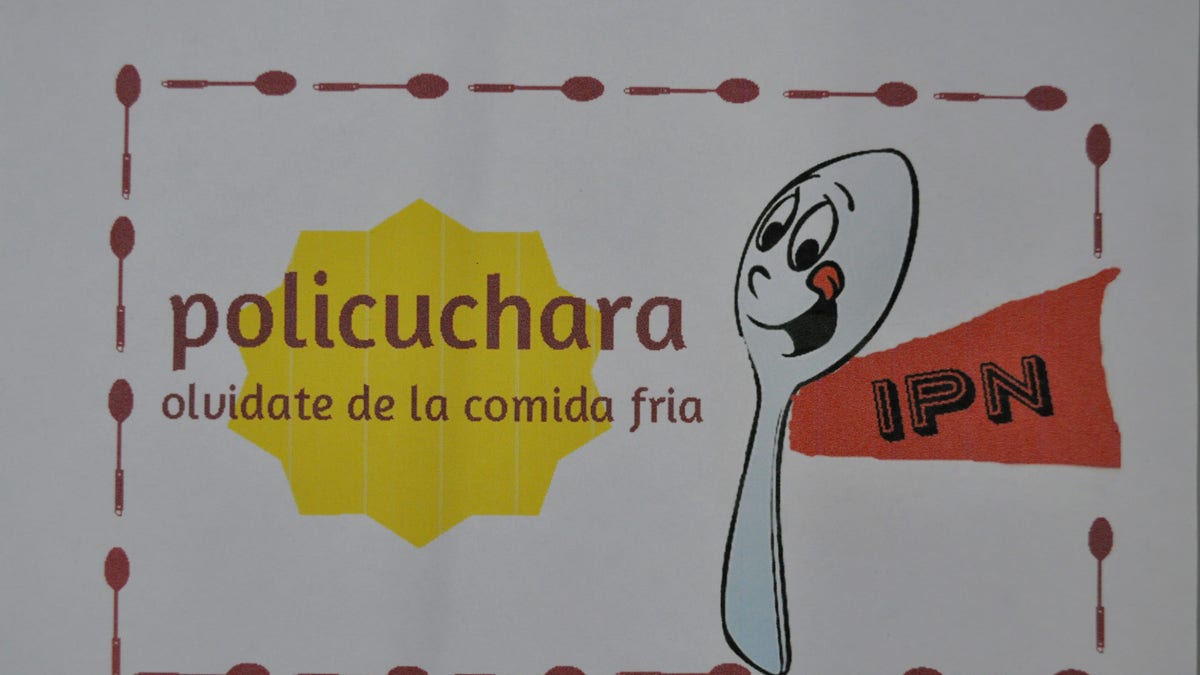
Tania Yolotzin, Andrea Moreno, Maria Caudillo and Cinthia Padilla. (FoxNews.com/Alasdair Baverstock)
MEXICO CITY – A team of teenage Mexican students have come up with an invention that is turning quite a few heads: an electronic spoon that heats up your meal one spoonful at a time – or reheats it all at once if you choose to stir it.
hey are hoping their innovation can offer an easy solution for hungry consumers on the go.

(FoxNews.com/Alasdair Baverstock)
The PoliCuchara (PolySpoon), designed as part of their freshman year Creative Development course at Mexico City’s National Polytechnic Institute, won first prize at a countrywide innovation fair last week, and has already been patented by the school.
Equipped with three 9-volt batteries inside the wooden handle, the spoon’s ladle reaches up to 140 F, enough to heat a meal but not enough to burn the user.
The innovative new tool allows a hungry consumer to heat anything from soup, rice, pasta and other bite-sized pieces of food in the time it takes for a microwave to perform the same task.
“We came up with the idea while riding the Mexico City subway,” said Maria Caudillo, 15, the youngest member of the four-girl team, whose electrical engineering studies allowed the idea to become reality in just two months of twice-weekly classes.
“So many commuters bring food with them on public transport, but have to wait until they reach a place with a microwave oven if they want a hot meal,” she told FoxNews.com. “The idea for a thermoelectric spoon seemed obvious to us.”

“Microwaves focus energy on heating water molecules, which leaves the food soggy, and besides that, they aren’t always available,” said Andrea Moreno, 17, who believes the product could become a bestseller in Mexico. “We wanted to design something portable which would deliver reliable results.”
The spoon has a single heat setting and users can choose between heating their meal fully ready for eating, or warming each individual mouthful as they go. The batteries can last up to a month of daily use twice a day.
“We took the product to the streets and the people we interviewed loved it,” said Cinthia Padilla, 16, who discovered in the course of her inquest that roughly half of Mexicans take homemade packed lunches to work or school, the majority in Tupperware-style containers.
“We were very encouraged by our market research, and with a few changes we hope to be able to sell the PolyCuchara commercially soon,” she told FoxNews.com. “It would be wonderful to see people using an invention of ours in their everyday lives.”
With the help of the college and a few modernizing adjustments to the spoon, the girls are hoping to bring the PolySpoon to the Mexican market by mid-2017 to retail at $10 apiece. The manufacturing costs are just $3.50 per unit.
Related News...
“We will have to install a rechargeable battery and make it look a bit neater, but we believe it will appeal throughout Mexican society and that it will sell”, said Tania Yolotzin, 17, who designed the new product’s logo. “Babies, hospitals, office workers, school children; there are a lot of potential users.”
“It could even be used as a hair curler when the user has finished eating,” she joked. “It has been designed by Mexicans, with Mexicans in mind.”
“I’m extremely proud of the students,” said their teacher Maria Rivera, who had encouraged the 22 design teams in her classroom to solve problems they face in their everyday lives. “It bodes well for their futures that they have already gained such nationwide recognition for their work, and after less than a semester at the college.”
Other teams in the girls’ class came up with a blow-operated microwave system, aromatherapy-infused pet toys and a walking cane that allows users to answer phone calls hands free, via Bluetooth, preventing loss of balance while fumbling in pockets to find the phone.
The National Polytechnic Institute, a Mexican state-run trade school for students from underprivileged backgrounds, has a long history of innovation and invention.
The institute is responsible for color television, weight-loss chocolate, the air-cleaning light bulb and a phone charger that uses the kinetic energy from knee movement to replenish a cell phone battery.
“We have a lot more ideas for innovative products,” said Andrea Moreno, “but they will be surprises later on. For the moment it’s very satisfying to put all our energy into this to see how far it can go.”








































